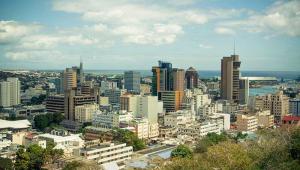Growth in Sub-Sahara Africa is likely to go from 2.7% last year to 3.1% this year, according to the fund’s economic outlook for the area, released last month.
This was a result of domestic policy changes, the oil price rebound and global growth uptake, the outlook said.
But Papa N’Diaye, deputy division chief in the IMF Strategy, policy and review department, warned that countries “wouldn’t be immune” to external shocks, such as the rising trade war tension and spikes in commodity prices, at a roundtable yesterday.
Presenting the outlook to a roundtable at the Overseas Development Institute yesterday, N’Diaye said: “Building resilience [to future shocks] is important.”
The outlook advised governments in the region to ensure policies strengthen their countries’ fiscal resilience, for example, through reducing their vulnerability to shocks and increasing their revenue.
The IMF highlighted that sub-Saharan Africa needs to create 20 million jobs per year over the next two decades to keep up with the population.
The fund said this could be done by improving education systems to keep up with the skills required, a better social security system for workers and trade integration.
Growth was biggest in those countries that export oil, the IMF concluded.
Nigeria growth is expected to increase by 1.9% in 2018, up from 0.8%, while South Africa’s growth is expected to be 0.8% in 2018.
Last month, a campaign group warned that African government’s debt to overseas lenders doubled in two years, with debt payments increasing from 5.9% in 2015 to 11.8% on overage in 2017.







